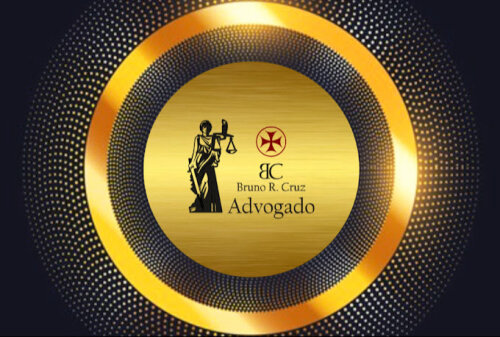Best Child Custody Lawyers in Portugal
Share your needs with us, get contacted by law firms.
Free. Takes 2 min.
Free Guide to Hiring a Family Lawyer
Or refine your search by selecting a city:
List of the best lawyers in Portugal
About Child Custody Law in Portugal
Child custody in Portugal is primarily governed by the Portuguese Civil Code and family law legislation. The primary consideration in child custody disputes is the best interest of the child. Portuguese law recognizes two main types of custody arrangements: sole custody and joint custody. In joint custody, both parents share the responsibility of making decisions about the child's life, while sole custody grants this responsibility to one parent. The legal framework prioritizes the well-being and rights of the child and encourages parental cooperation and mutual agreement in custody arrangements.
Why You May Need a Lawyer
Legal expertise may be necessary in various situations involving child custody, such as during divorce proceedings, disputes over custody arrangements, or when seeking modifications to existing custody orders. A lawyer with experience in family law can help navigate the complexities of the legal system, ensure the rights of both the child and parents are protected, and work towards a favorable resolution. They can also provide valuable guidance in cases involving international aspects or where there might be allegations of child neglect or abuse.
Local Laws Overview
Key aspects of the child custody law in Portugal include a focus on the child's welfare and the promotion of joint parental responsibility, irrespective of the parents' marital status. The courts encourage cooperative parenting and mediation as a way to settle disputes. In the absence of mutual agreement, a judge determines the custody arrangement based on factors such as the child's age, emotional needs, and relationships with each parent. Portuguese law also enables grandparents and other relatives to seek visitation rights under certain circumstances.
Frequently Asked Questions
What factors does the court consider in child custody cases?
The court considers the child's best interests, which include factors like emotional and physical well-being, the child's wishes, each parent’s ability to care for the child, and the child's existing relationships with each parent and siblings.
Can a custody agreement be modified?
Yes, custody agreements can be modified if circumstances change significantly. Legal assistance is recommended to navigate the process and ensure the child's interests remain prioritized.
Do both parents automatically have joint custody?
While joint custody is encouraged, it is not automatic. Parents can agree on joint custody, but without agreement, a court may decide based on the child’s best interests.
How can custody be enforced if the other parent is non-compliant?
If a parent is not complying with custody orders, legal action can be taken to enforce compliance. This may involve a court application and seeking assistance from family law authorities.
What happens if one parent wants to relocate with the child?
Relocation typically requires the consent of the other parent or a court order, emphasizing the need to show that the move is in the child’s best interest. Legal advice is crucial in such cases.
Are grandparents entitled to visitation rights?
Under Portuguese law, grandparents can apply for visitation rights if they can demonstrate that such contact is in the child’s best interest and beneficial to their well-being.
What is the role of mediation in child custody disputes?
Mediation is encouraged as a less adversarial means of resolving custody disputes, allowing parents to reach mutually satisfactory agreements, often leading to healthier long-term relationships and arrangements.
How does international child abduction affect custody cases?
Portugal is a signatory to the Hague Convention, which provides a process for the return of children abducted internationally. Prompt legal action and advice are critical in these situations.
Can an unmarried parent seek custody?
Yes, unmarried parents have the same rights to seek custody or visitation as married parents. The key principle remains the child's best interest, not the marital status of the parents.
How does domestic violence affect custody decisions?
In cases involving domestic violence, the safety and welfare of the child are paramount. The court may impose restrictions on access or grant supervised visitation to protect the child.
Additional Resources
For assistance and information, several organizations and governmental bodies in Portugal can be valuable resources. These include the Commission for the Protection of Children and Young People (CPCJ), Portuguese Bar Association, local family courts, and social services. Consulting with professionals in family law and utilizing mediation services can also provide additional support and clarity.
Next Steps
If you require legal assistance with child custody in Portugal, it is recommended that you contact a lawyer specializing in family law to understand your options and rights. Gather all relevant documents and prepare to discuss your case details. You may also want to seek guidance from local family support services or NGOs specializing in women's or children's rights to get a clearer perspective before proceeding with legal actions.
Lawzana helps you find the best lawyers and law firms in Portugal through a curated and pre-screened list of qualified legal professionals. Our platform offers rankings and detailed profiles of attorneys and law firms, allowing you to compare based on practice areas, including Child Custody, experience, and client feedback.
Each profile includes a description of the firm's areas of practice, client reviews, team members and partners, year of establishment, spoken languages, office locations, contact information, social media presence, and any published articles or resources. Most firms on our platform speak English and are experienced in both local and international legal matters.
Get a quote from top-rated law firms in Portugal — quickly, securely, and without unnecessary hassle.
Disclaimer:
The information provided on this page is for general informational purposes only and does not constitute legal advice. While we strive to ensure the accuracy and relevance of the content, legal information may change over time, and interpretations of the law can vary. You should always consult with a qualified legal professional for advice specific to your situation.
We disclaim all liability for actions taken or not taken based on the content of this page. If you believe any information is incorrect or outdated, please contact us, and we will review and update it where appropriate.
Browse child custody law firms by city in Portugal
Refine your search by selecting a city.
















